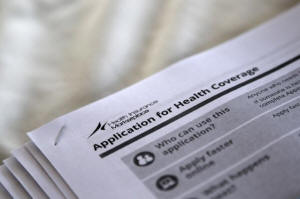|
President Barack
Obama's Affordable Care Act, often called Obamacare, created
online exchanges where consumers can shop for individual health
insurance and receive income-based subsidies. The exchanges
opened in 2014 with insurance for sale by major companies
including Aetna Inc and Anthem Inc.
But enrollment has been about half of what was initially
expected and some large insurers this year have said they were
losing too much money on the exchanges because of that and the
fact that enrollees are older and sicker than expected. Aetna
and UnitedHealth Group have largely pulled out of the exchanges
for 2017.
"This is essentially a status quo projection, with expected
growth in enrollment matching what happened this year. That
strikes me as reasonable, not too pessimistic, not too
optimistic," Kaiser Family Foundation healthcare researcher
Larry Levitt said.
There is upheaval now as exchanges head into enrollment, he
said, referring to bigger premium increases than in previous
years and insurers exiting the market. Any enrollment growth
would be a good signal to insurers, Levitt added.
The health department said it expects 2017 sign-ups of 13.8
million people versus 12.7 million for 2016. Average monthly
enrollment in 2017 is estimated at 11.4 million people, up from
10.5 million people in 2016, the official said.
Separately, Health and Human Services Secretary Sylvia Burwell
told reporters that there are 10.7 million uninsured people who
are eligible for the exchanges but unenrolled, and about 40
percent of those are young, she said. More enrollees in that
group, aged 18 to 34, could help balance out insurer costs
because they typically have lower health costs.
(Additional reporting and writing by Caroline Humer in New York;
Editing by Matthew Lewis and Andrew Hay)
[© 2016 Thomson Reuters. All rights
reserved.] Copyright 2016 Reuters. All rights reserved. This material may not be published,
broadcast, rewritten or redistributed.
 |
|






